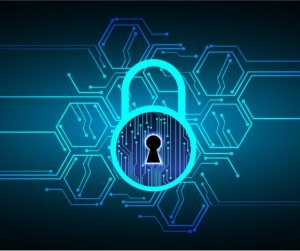Human service organizations operate in a highly sensitive environment, where protecting client information and ensuring compliance with regulations like HIPAA (Health Insurance Portability and Accountability Act) are paramount. While many roles in these organizations may not require frequent email use for day-to-day tasks, providing every employee with a secure, organization-issued email address is a critical step toward safeguarding data and maintaining compliance. Here’s why:
- Strengthening Security Measures
Organization-issued email addresses offer a secure and centralized communication channel. Personal email accounts or shared communication methods are more vulnerable to cyberattacks, phishing attempts, and unauthorized access. By assigning email addresses to all employees:
- Controlled Access: IT departments can monitor, secure, and revoke access as needed when an employee leaves or changes roles.
- Multi-Factor Authentication (MFA): Secure organization emails can incorporate MFA, reducing the risk of breaches.
When every employee uses a secure email account for work-related matters, the organization minimizes the chances of sensitive data being leaked or intercepted.

- Ensuring HIPAA Compliance
HIPAA requires organizations handling protected health information (PHI) to implement administrative, physical, and technical safeguards. This includes secure communication channels for sharing or accessing PHI. Providing all employees with secure email accounts helps:
- Audit Trails: Organization-managed email systems create logs of communications, ensuring traceability and accountability.
- Encryption: Emails can be encrypted to prevent unauthorized access to PHI.
- Policy Enforcement: IT teams can enforce data protection policies, such as prohibiting the use of personal accounts for work-related communications.

Failing to provide secure communication options can lead to accidental violations, exposing the organization to legal and financial risks.
- Leveraging Single Sign-On (SSO) Across Systems
A secure, organization-issued email address is often the cornerstone of single sign-on (SSO) solutions, which streamline access to multiple software platforms used in human services. SSO offers:
- Improved User Experience: Employees can log in once using their email credentials to access all necessary tools, reducing password fatigue.
- Enhanced Security: Centralized authentication reduces vulnerabilities by limiting the need for multiple passwords across systems.
- Efficient Management: IT teams can manage user permissions and software access from a single control point, making it easier to onboard, offboard, or modify access as roles change.
With SSO, the email address becomes more than a communication tool—it integrates employees seamlessly into the organization’s digital ecosystem.
- Simplifying Offboarding Processes
When an employee leaves the organization, having a centralized, organization-issued email address simplifies the offboarding process. For example:
- Access Termination: IT can quickly deactivate the email account, cutting off access to sensitive data and preventing potential breaches.
- Communication Redirection: Incoming emails can be redirected to a manager or appropriate team member, ensuring no critical client or organizational communications are lost.
This ensures a clean and secure transition while maintaining continuity in operations and protecting sensitive information.
- Encouraging Professionalism and Accountability
An organization-issued email address reinforces professional boundaries and accountability. It ensures employees represent the organization consistently in their communications, even if they rarely use email for their primary duties. For example:
- Internal Announcements: Ensuring all employees receive critical updates, training schedules, or policy changes.
- Emergency Communication: Providing a reliable way to reach every employee quickly in case of a data breach, weather emergency, or other urgent situations.

- Future-Proofing the Organization
As organizations evolve, so do their communication needs. Employees who might not frequently use email now may require it in the future for telehealth support, hybrid work arrangements, or new technologies. Establishing an email address for everyone now ensures readiness for these changes.
Conclusion
Providing every employee with a secure, organization-issued email address is more than just a communication tool—it’s a safeguard against security risks and regulatory pitfalls. Additionally, it simplifies key processes like offboarding, where IT teams can quickly deactivate or redirect accounts, maintaining data security and operational continuity. Leveraging these email addresses for SSO solutions further streamlines access to essential software, bolstering security and efficiency.
Human service organizations must view this step not as an optional convenience but as a fundamental part of their commitment to data protection, professionalism, and compliance. The investment in secure email infrastructure pays off by ensuring trust, accountability, and peace of mind for employees and clients alike.

